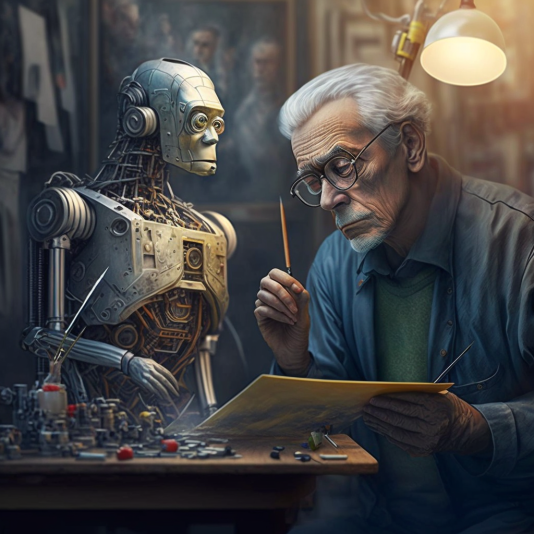What is AI?
AI (artificial intelligence) refers to the ability of a computer or machine to perform tasks that would normally require human intelligence, such as learning, problem-solving, decision-making, and language understanding. There are different types of AI, ranging from simple rule-based systems to more advanced machine learning algorithms that can adapt and improve over time. AI can be used in a variety of applications, including image and speech recognition, language translation, and decision support systems. The development of AI is driven by the desire to automate tasks and make machines more intelligent and autonomous, and it has the potential to revolutionize many industries and aspects of our lives.
Increased efficiency
Improved accuracy
Enhanced decision-making
Increased productivity
AI the future?
There are a number of reasons why AI is often seen as the future of technology and how we live and work. Some of the key factors include:
- The increasing availability and affordability of computing power and data storage, which has made it possible to develop and deploy more sophisticated AI systems.
- The rapid advances in machine learning and other AI technologies, which have led to significant improvements in the accuracy and performance of AI systems.
- The growing demand for automation and the need to improve efficiency and productivity in a variety of industries.
- The potential for AI to transform and improve many aspects of our lives, such as healthcare, transportation, and education.
Overall, it is believed that AI has the potential to revolutionize how we live and work, and will play a central role in shaping the future of technology.
